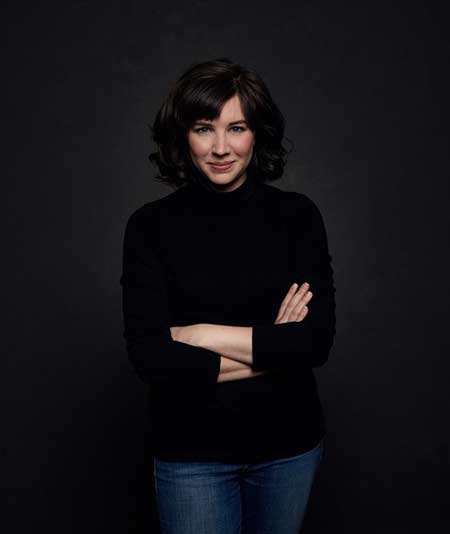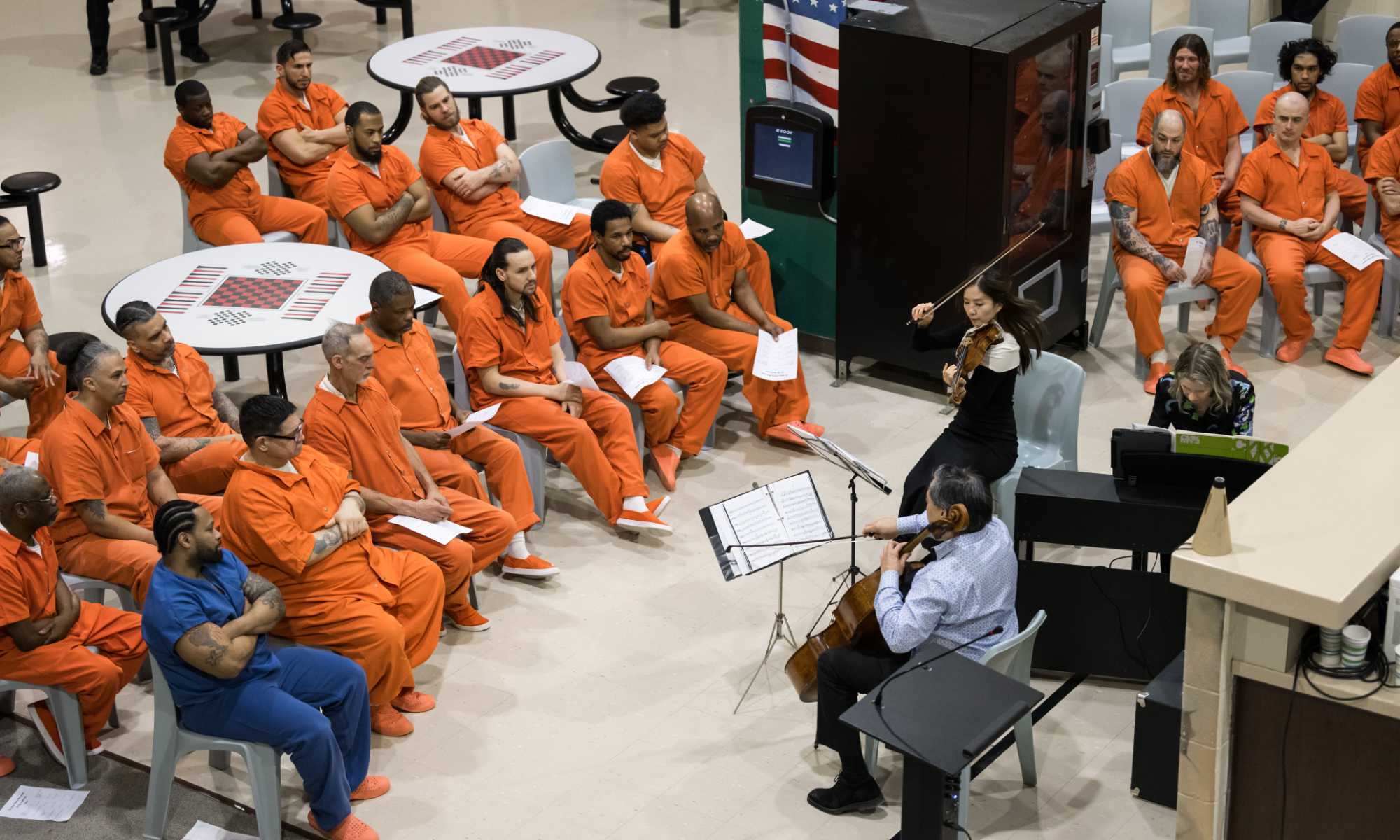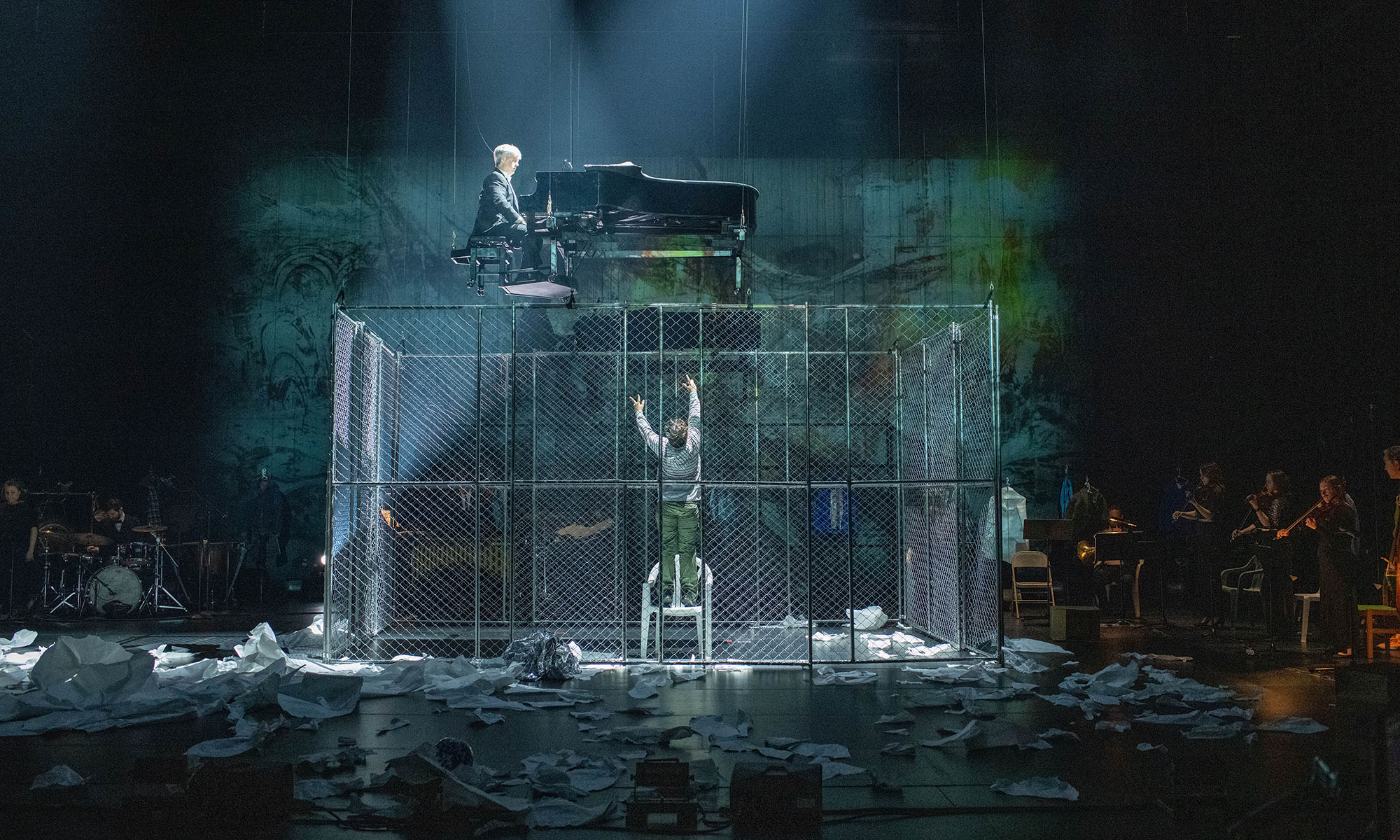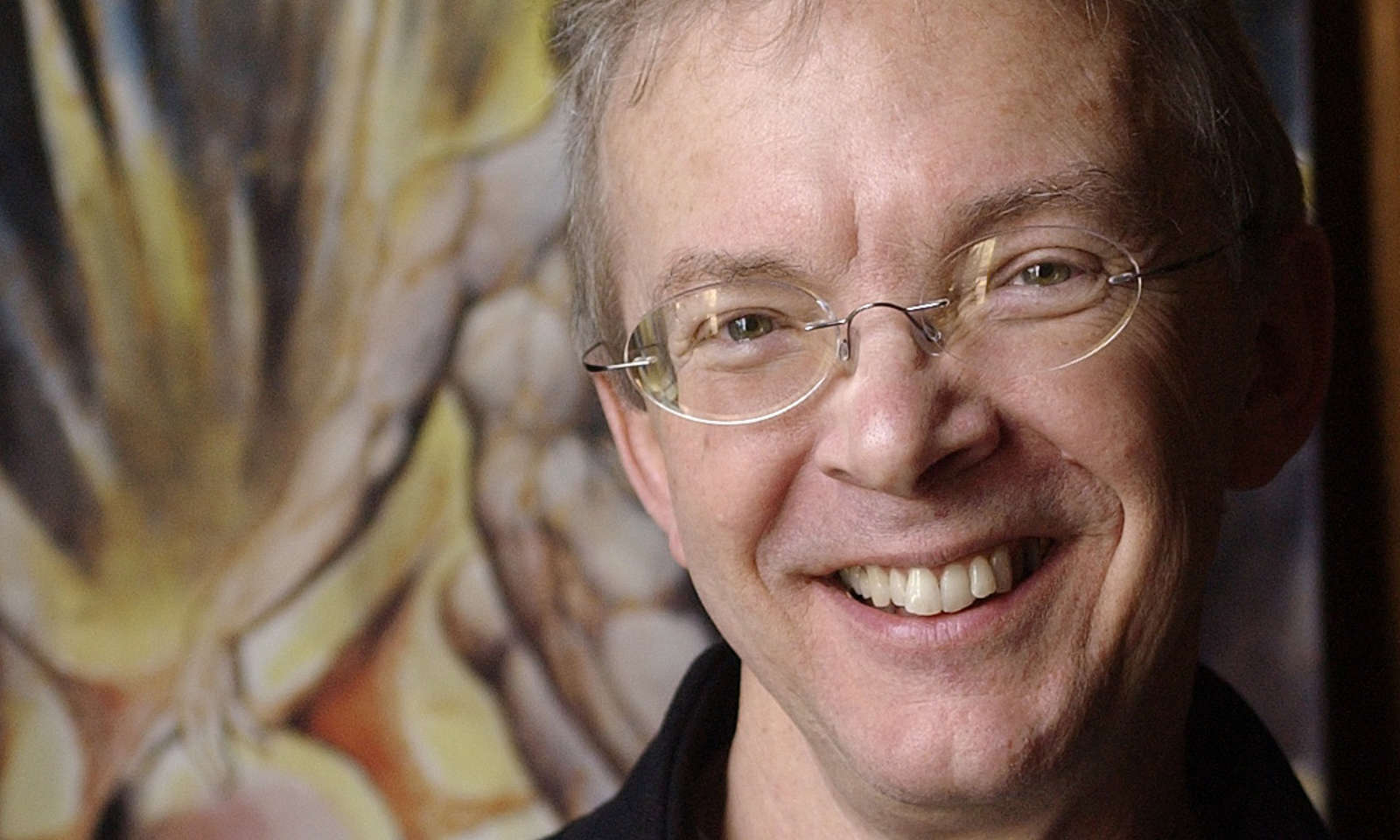The University is home to world-class programs in the performing arts through the Eastman School of Music as well as programs in music, theater, and dance in the School of Arts and Sciences. The new Sloan Performing Arts Center— a 29,000-square-foot facility on the River Campus—is slated to open in Spring 2021 and will provide a space for theatrical programs, dance programs, concerts and other activities. The center will house a theater, scene shop, dressing rooms, costume shop, and green room.
Each month, we’ll interview a faculty member, student, or visiting artist in the areas of music, theater, or dance. Learn more about performing arts on the Institute for the Performing Arts website.

Kate Eminger—a director and filmmaker based in New York—is visiting guest director of The Grown-Up, an International Theatre Program production that opens its 30th anniversary season. She has developed and directed work with theater company Clubbed Thumb, Ars Nova, La Jolla Playhouse, NYU, and the Edinburgh Fringe Festival—to name a few. She’s also an adjunct professor of directing at Five Towns College.
What has Rochester been like for you?
I never been to Rochester before. I feel like I’m here at the exact right time—the weather has been great. Rochester Housing put me near the Park Avenue area, so I love the houses and the walks are beautiful in the neighborhood. I keep hearing that I should go to the Finger Lakes. I’m not sure if I’ll have time, but it’s been great to be in the city, in these neighborhoods where the University is located—everyone is so charming.
When did you realize you wanted to be a director?
My first directing experience was in high school, which was about 20 years ago. But I got a performance degree in undergrad from St. Edwards’s University in Austin Texas. Very much like the University of Rochester, in that students were required to take a variety of classes, but different then Rochester, there was a theater degree.
I wanted to be an actor—but like a lot of directors that I know now—had a similar experience, in that they found out a little bit later in their theater career that they wanted to be a director. I had this moment in undergrad where I was cast as the lead in a musical. This was a big thing which happened early in my senior year. But at the same time, I was asked to direct a one-act play for school, and they conflicted and I couldn’t do both. My gut was ‘you got to direct the play.’ I did that and turned down the role and everybody was in shock or it felt dramatic at the time. Since that time, I’ve pursued directing as my career.
I see that you were a resident chef at Space on Ryder Farm—what is that?
Space on Ryder Farm is a nonprofit artist residency and organic farm. I first got involved about three years ago. I always heard of playwright friends, director friends, and designer friends who went to the farm—you stayed on the farm as an artist. All your meals are provided for you, while you do work on your work.
I thought it was extraordinary thing for someone to be doing and I was very curious and wanted to get involved. I happen to be a decent cook from Texas—it was bred in me. I went in 2016 and started cooking meals. It was a beautiful experience to take a carrot from the earth and put in a dish and imagine and create in that way—and then sit down to meals with playwrights and other theater artists whom I’d always admired or never have knew and now they are my closest friends.
I feel like the cooking aspect of is very curatorial—you’re thinking about how a meal will play in front of an audience, which is the group of guests, and very similar in directing where there’s several elements you have to have your eye on all at once. There are times when you have to slow things down and be really meticulous and really care for a certain piece, and there are other times when, 15 minutes or so before you serve, everything is coming together and you have to be able to juggle ideas and a lot of things at once.
All of these skills that I learned as a director, came into cooking on the farm. It’s also an incredibly exciting side gig and it works really well with my transient freelance schedule. It’s not a regular 9-to-5, where I’m stuck in one place.
Your experience at the Ryder Farm sounds in the spirit of Rochester and our interdisciplinary nature and how students explore the intersections of various disciplines to further a particular study. For example, there are business majors, a brain and cognitive major—performing in the production. What are your thoughts on this being an edge for actors as they take on acting in a play?
I think it’s extraordinary! When I first got here and started working with the students, I realized that they brought a whole different skill set to the rehearsal room. Tomas Waz ’20, he began to talk about the kind of psychosis they might be going through; there’s a character who’s on Adderall, and then she comes off of Adderall, and she has these hallucinations. He had so much insight into that and he has a mind for thinking about how a character is processing something, which something doesn’t always come naturally to all actors. Celia Konowe ’21 is an environmental science major, and it may not specifically lend itself to this play, but we’ve had a lot of amazing conversations about the topic. It brings a diversity of prospectives into the rehearsal room.
Do you have advice for those hoping to follow your footsteps?
I would say a couple of things. To become a director is just start directing—no one is going to say oh, ‘you’re director now because you’ve done x, y, and z now.’ There is not a map. You just start doing it. Also the best directors I know, have no ego. It’s something you have to continuously work on. It makes for a better collaboration between an actor and director.
Getting to the play, what made you pick Jordan Harrison’s The Grown-Up?
It has been on my list of plays that I wanted to director for quite a while. I first saw it in 2013 at the Humana Play festival in Louisville, Kentucky—which is one of the premiere play festivals that happens in the United States, and so it’s a big deal for a playwright to have his or her work premiere there. And I did not know Harrison’s work at the time, it was my first experience. I saw this play and I was bowled over. He captures this idea that there’s magic in everyday life and there is this shaky feeling—a time-traveling feeling of memory and growing older and how when you look at a mirror and you see your face and you know the age that you are, but you feel 10 years younger inside. It’s kind of a universal feeling and he just captures it in the play in way that is so affecting.
I’m also the kind of director that doesn’t gravitate toward a traditional linear type of play—a play that maybe takes place in one living room or course of time, not that I don’t love those plays. But I tend to get excited about plays that are replicating our experience in real life—which is that we are at once conscious of the present, aware of the past, and thinking about the future—all at the same time. So I feel like we don’t live in a linear way, and the art that is interesting to me is not living in the one-track linear way.



